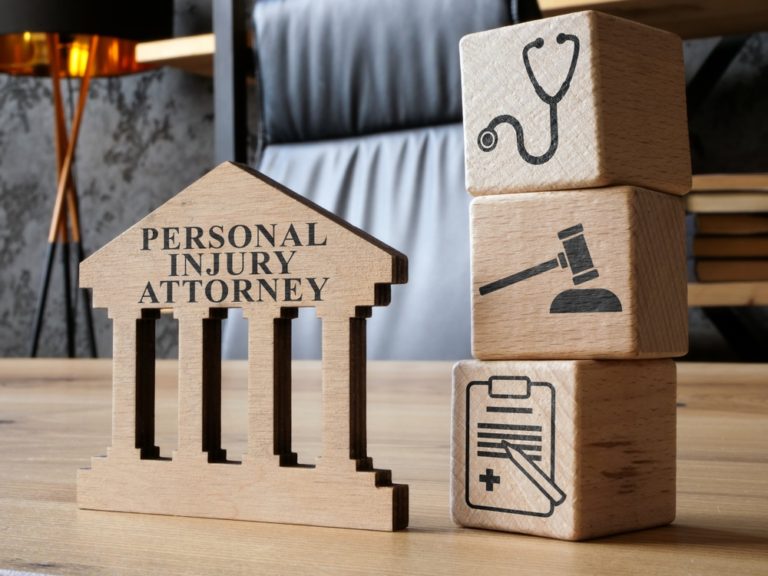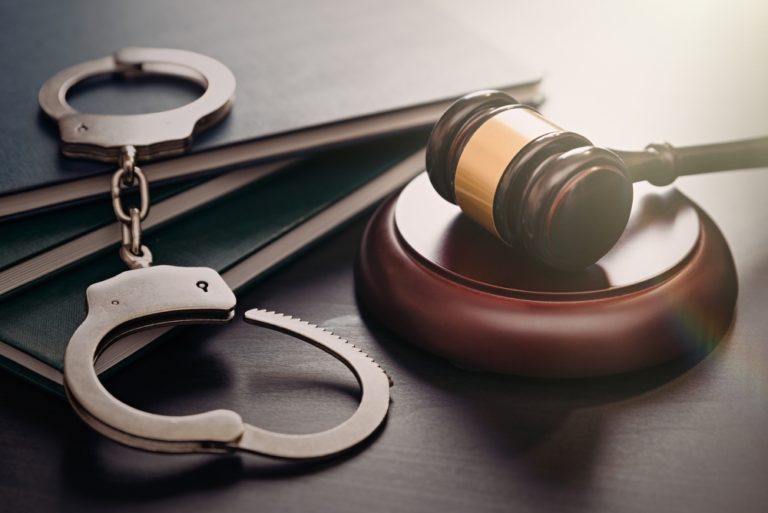As parents, we strive to create safe environments for our children. But sometimes, accidents happen, and a child may suffer injuries due to someone else’s negligence. Dealing with a child injured in such an accident involves unique legal considerations. While no money can truly compensate for the harm done, a personal injury settlement can help ensure your child receives the care and resources needed for recovery.
Navigating the legal process following a child’s injury can be overwhelming. If your child has been injured in an accident in Hawaii, it’s important to understand the unique laws and procedures that apply to personal injury settlements involving minors. At Olson & Sons, we’re dedicated to guiding families through this process with compassion and expertise.
Understanding Personal Injury Claims for Minors
Personal injury claims involving minors differ significantly from those involving adults. In Hawaii, as in most states, a minor cannot legally enter into a binding contract, including a settlement agreement. This means the court system plays a vital role in protecting the child’s interests.
The Role of the Court
The court’s primary concern in any personal injury case involving a minor is the child’s best interests. This includes ensuring the settlement adequately covers the child’s current and future medical expenses, therapy, rehabilitation, pain and suffering, and any other costs associated with the injury.
To achieve this, the court must approve any settlement agreement reached on behalf of a minor. Often, a guardian ad litem is appointed to represent the child’s best interests, providing legal approval on behalf of the child and overseeing the use of the funds. The court will carefully review the settlement terms to ensure they are fair, reasonable, and in the child’s best interests.
Steps in a Minor’s Personal Injury Settlement
- Seeking Legal Representation: The first step is to consult with an experienced personal injury attorney specializing in representing minors. Your attorney will handle all aspects of the case, from negotiating with the insurance company to representing your child’s interests in court. It is especially important to consult a personal injury attorney for cases involving a car accident settlement, as there are specific rules and considerations related to settlements for minors.
- Filing a Lawsuit: In many cases, a lawsuit must be filed on behalf of the minor to initiate the settlement process. Your attorney will file the lawsuit and handle all court appearances.
- Settlement Negotiations: Your attorney will negotiate with the at-fault party’s insurance company to reach a fair settlement agreement. This often involves gathering medical records, expert opinions, and other evidence to support your child’s claim.
- Court Approval: Once a settlement agreement is reached, it must be submitted to the court for approval. The court may hold a hearing to determine if the settlement is in the child’s best interests.
- Structured Settlements: The court will order a structured settlement in many cases involving minors. This means the settlement funds are paid out over time rather than in a lump sum, helping ensure the child’s future financial needs are met.
Unique Aspects of Personal Injury Settlements for Minors in Hawaii
- Statute of Limitations: In Hawaii, the statute of limitations for personal injury claims involving minors, who are the injured party, is generally tolled (paused) until the child reaches the age of majority (18). This gives the child ample time to file a lawsuit after turning 18.
- Parental Consent: While parental consent is typically required for a settlement involving a minor, the court ultimately has the final say in approving the agreement.
- Guardianship: If the settlement is substantial, the court may require the appointment of a guardian to manage the funds on behalf of the child until the child reaches the age of majority.
- Tax Implications: Personal injury settlements are generally not taxable, but consulting with a tax professional is important to ensure compliance with relevant tax laws.
Protecting Your Child’s Future: Considerations Beyond the Settlement
While securing a fair settlement is crucial, it’s equally important to consider how the funds will be managed and utilized to benefit your child in the long run. Properly managing a child’s settlement money is essential to ensure it lasts into adulthood. Here are some key aspects to keep in mind:
Financial Planning and Investment
A personal injury settlement, especially a substantial one, can significantly impact your child’s financial future. It’s wise to consult with a financial advisor experienced in managing funds for minors. They can help you create a comprehensive plan that addresses:
- Preserving the Principal: Ensuring the settlement money is invested wisely to protect against inflation and provide long-term growth.
- Income Generation: Generating income from the funds to cover ongoing expenses like medical care, therapy, and education.
- Tax Efficiency: Minimize tax liability on settlement funds and any investment income.
- Future Needs: Planning expenses like college tuition, housing, or specialized care.
Special Needs Trusts
If your child’s injuries result in long-term disabilities or special needs, establishing a Special Needs Trust (SNT) can be a valuable tool. An SNT allows you to set aside funds for your child’s care without jeopardizing their eligibility for government benefits like Supplemental Security Income (SSI) or Medicaid.
An SNT can be tailored to your child’s needs, providing medical care, therapy, assistive technology, and specialized housing expenses.
Guardianship and Conservatorship
Depending on the size of the settlement and your child’s age, the court may require the appointment of a guardian or conservator to manage the funds on your child’s behalf. A guardian typically handles the child’s personal affairs, while a conservator manages their financial matters.
Choosing a guardian or conservator who understands your child’s needs and will act in their best interests is important. This could be a trusted family member, friend, or professional fiduciary.
Ongoing Legal Support
Even after the settlement is finalized, your attorney can continue to provide valuable legal support. They can assist with:
- Modifications to the Settlement: If your child’s medical condition changes or unexpected expenses arise, your attorney can help you petition the court to modify the settlement terms.
- Disputes: If there are any disputes regarding the settlement with the insurance company or other parties, your attorney can help resolve them.
- Estate Planning: Your attorney can help you incorporate the settlement funds into your overall estate plan to ensure your child’s financial security in the future.
The Importance of Communication
Open communication with your child is crucial throughout the settlement process and beyond. As they age, involving them in decisions about their finances and future is important. Explain the settlement and its purpose in age-appropriate terms.
Seeking Support
Handling the aftermath of a child’s personal injury can be emotionally challenging. Don’t hesitate to seek support from therapists, support groups, or other resources to help your family cope and move forward.
Choosing the Right Law Firm
Selecting the right law firm is crucial when seeking compensation for your child’s injuries. Here’s what to look for:
- Experience: Choose a law firm with a proven track record of successfully handling personal injury cases involving minors.
- Compassion: Your attorney should be compassionate and understanding of the unique challenges your family is facing.
- Expertise: Seek a firm with in-depth knowledge of Hawaii’s personal injury laws and procedures for minors.
- Resources: Ensure the firm has the resources to investigate the case and build a strong legal strategy thoroughly.
Olson & Sons: Your Trusted Advocates
At Olson & Sons, we understand the emotional and financial strain a child’s injury can place on a family. Our experienced attorneys are committed to fighting for your child’s rights and ensuring they receive the compensation they deserve.
We deeply understand Hawaii’s legal landscape and have a proven track record of success in personal injury cases involving minors. We’ll work tirelessly to build a strong case, negotiate with the insurance company, and represent your child’s interests in court.
If your child has been injured in an accident, don’t hesitate to contact Olson & Sons. We offer free consultations and are here to help your family through this difficult time.
Disclaimer: This article provides general information and is not intended as legal advice. Consult with a qualified attorney for guidance on your specific situation.
Top FAQs About Personal Injury Settlements for Minors in Hawaii
How long do I have to file a personal injury lawsuit for my child in Hawaii?
The statute of limitations for personal injury cases involving minors in Hawaii is generally tolled (paused) until the child turns 18. This means your child has until their 20th birthday to file a lawsuit. However, it’s crucial to consult an attorney as soon as possible to preserve evidence and build a strong case.
What if my child was partially at fault for the accident?
Hawaii follows a modified comparative negligence rule. This means your child can still recover damages even if they were partially at fault, as long as their fault is not greater than 50%. The amount of compensation may be reduced based on the degree of fault.
How are settlement funds distributed in a minor’s personal injury case?
The court typically orders a structured settlement, where the funds are paid out over time rather than in a lump sum. This helps ensure the child’s financial needs are met throughout their life.
What if my child’s medical condition worsens after the settlement?
Sometimes, it may be possible to modify the settlement if your child’s medical condition significantly worsens after the agreement is finalized. An attorney can help you petition the court for a modification.
Can I use the settlement funds for my expenses?
No, the settlement funds belong to your child. They are intended to cover their medical expenses, therapy, rehabilitation, and other costs associated with their injury. Misusing the funds can have legal consequences.
Do I need a lawyer to handle my child’s personal injury case?
While it’s not legally required, having an experienced attorney is highly recommended. They can navigate the complex legal process, negotiate with the insurance company, and protect your child’s best interests.
How much does hiring a personal injury lawyer for my child cost?
Most personal injury attorneys work on a contingency fee basis. They only get paid if you win your case; their fee is a percentage of the settlement or verdict. This makes legal representation accessible for families.
Let Olson & Sons Help You
If your child has suffered injuries in an accident, don’t hesitate to contact Olson & Sons. We’ll guide you through the legal process, fight for your child’s rights, and help secure their financial future.
Related Content: Can Child Support be Taken from a Personal Injury Settlement in Kona?








